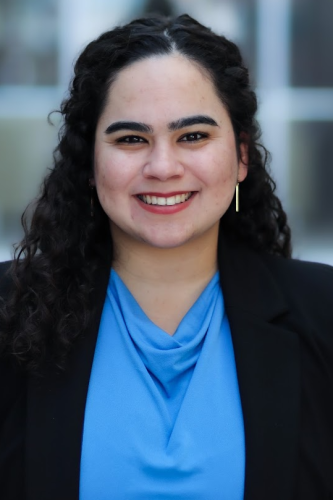
Victoria Sanchez Guzman MD’25 ScM’25
Biography
Victoria Sanchez Guzman came to the PC-PM program from a non-medical background, thinking she would work in public health or social work. It turned out that PC-PM and, by extension, becoming an LIC fellow, wasn’t far removed from her original plan.
“Prior to here, I was an undergraduate at the University of Puerto Rico,” she says. “I did some research at the National Institutes of Health to see if that was a path for me, but I realized through clinical trials that I enjoyed interacting directly with patients. It all ended up being a great match for me.”
As the first in her family to pursue medicine, Sanchez Guzman recalled the different barriers she had to overcome from the beginning. She says learning about clinical practice and understanding broad topics like pharmacology were one thing, but there was also an underlying “hidden curriculum.”
“There was a process of trying to figure out what was expected of me when it wasn’t being voiced,” she says. “Even the concept of how to study or become a good test taker—which I am not—were things that didn’t seem like they were being discussed.”
Sanchez Guzman says she was grateful for the guidance of LIC fellows, especially as she experimented with different study methods and prepared for rotations. She felt the mentors stressed the importance of individuality, and encouraged open discussions and questioning. Like others who became fellows, Sanchez Guzman used those lived experiences to bring a unique perspective to the program.
“My main goal was to be approachable, in terms of asking complex questions, but I also wanted to be someone who you could text for things as simple as missing a pen,” she says. “Throughout the year I developed a very close relationship with many of the third-year students as a fellow, discussing many aspects, from how to voice their concerns with administration to where to buy lunch.”
Sanchez Guzman aimed to give her peers a sense of belonging in a bid to avoid developing the “imposter syndrome” that is common among medical students. She knew firsthand the considerable amount of time that could be lost to things like figuring out an effective study method, so she was sure to keep close contact with mentees on matters big and small. The experience reinforced the importance of encouraging her peers to advocate for themselves.
"Whatever position you’re in, you were chosen to be in it for a reason,” she says.